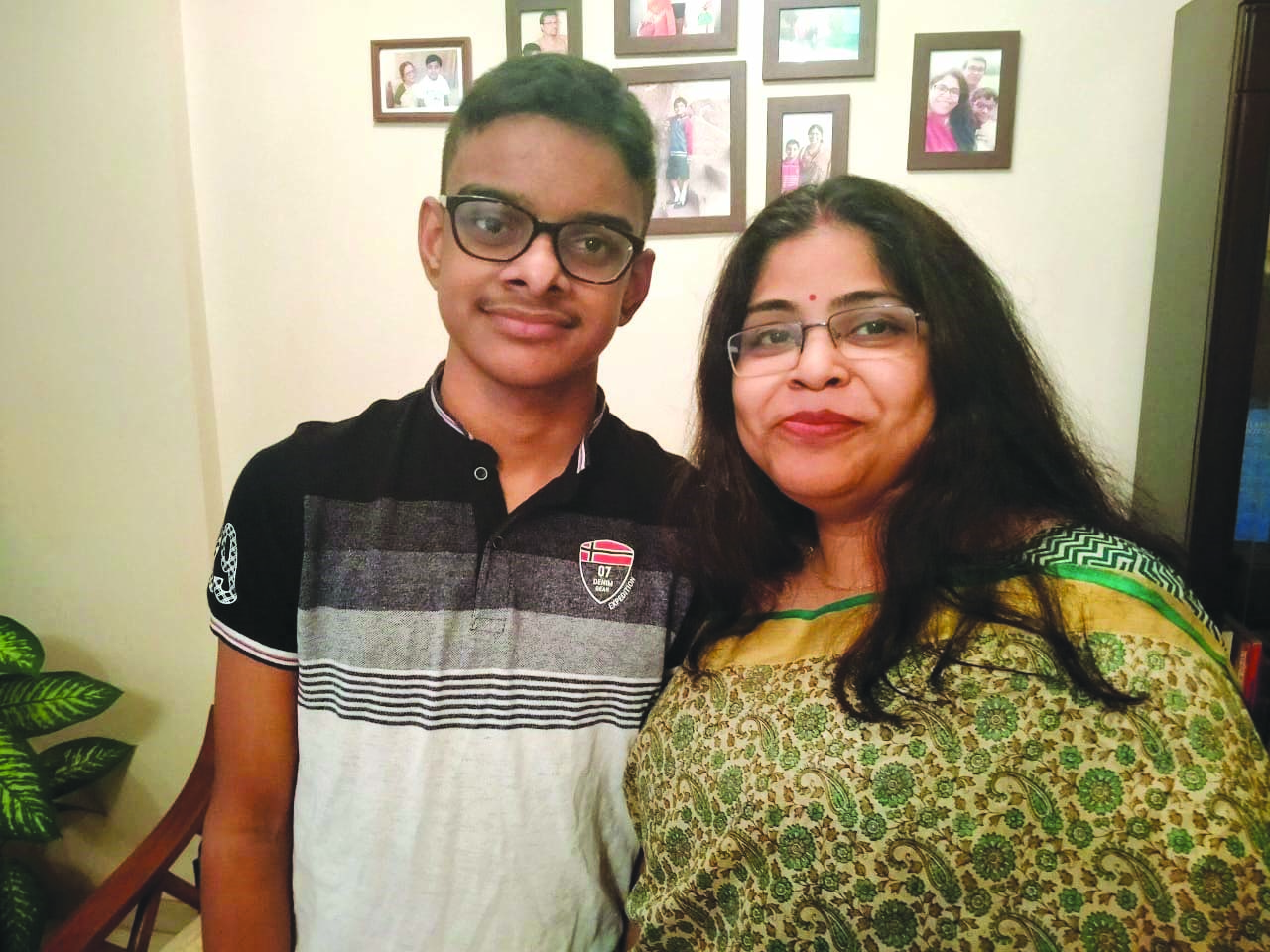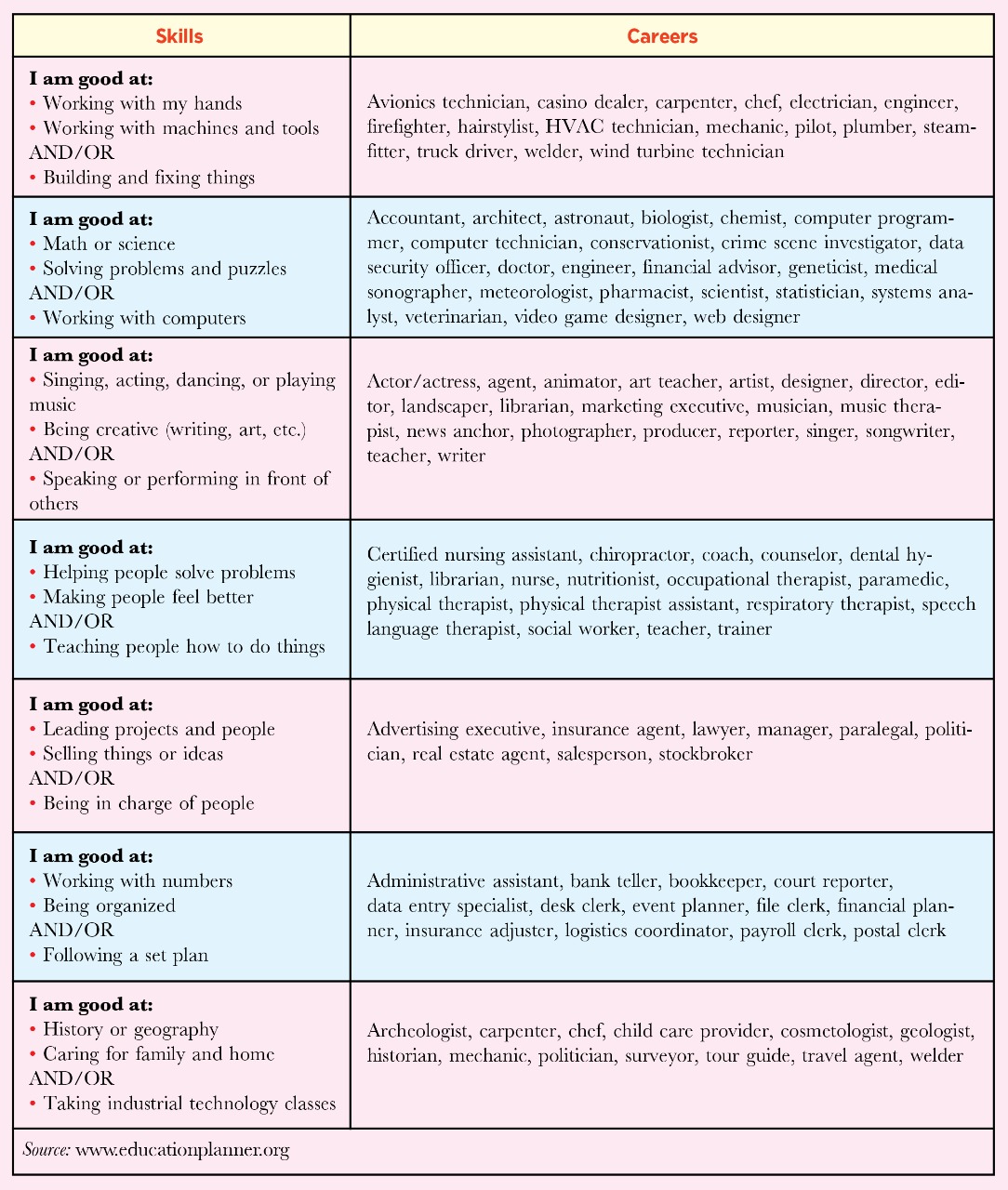Helping children choose new-age career pathways
The mind-boggling array of career pathways available to 21st century youth has made career and vocation planning a more complex endeavour than in the past. Confronted with a diverse multiliplicity of choices, parents and youth have to match aptitudes with career preferences, writes Poornima Dilip, Cynthia John & Ramya Sakthivel

The explosion of career choices in the digital age has made it exciting, but also difficult for India’s 12 million secondary school-leavers and 37 million university students to choose between new career pathways and vocations.
Two decades ago, choosing a career wasn’t as complicated and complex. Most school-leavers chose careers in engineering, medicine, law, defence and government service. However, after the historic liberalisation and deregulation of the Indian economy in 1991, annual rates of economic growth doubled and suddenly a slew of new vocation options such as fashion design, events management, biotech, health and fitness, among others, became available to school and college leavers.
Simultaneously, the ICT (information communication technologies), internet and social media revolutions opened up exciting and unimaginable career options powered by emerging technologies. And now after the Covid-19 pandemic popularised wfh (work from home) and gig employment, another slew of futuristic professional and vocational options have presented themselves.
Yet even as there’s a career choice bonanza in the 21st century, there’s limited awareness among Indian parents and school/college-leavers about new-age fast-track professions. A study conducted in 2019 by Delhi-based career counseling company Mindler Education Pvt. Ltd (estb.2015), found that 93 percent of students in the age group 14-21 are aware of just seven career streams — engineering, medicine, law, finance, design, computer applications and business management. Likewise, surveys targeting parents have revealed similar lack of awareness about careers, learning pathways, and fast-track progression and prospects in 21st century industries. Moreover, within India’s strongly patriarchal society, parents continue to greatly influence, if not dictate their children’s career choices. A 2015 Linkedin survey says that 82 percent of Indian parents are very involved in deciding their children’s vocations.

“Though Indian parents and students are becoming aware that numerous career choices are available these days, most of them don’t have any information about the education qualifications required and growth and rapid advancement prospects in new-age careers. Therefore, it’s important to first research unconventional career options and match them with their children’s interests, aptitudes and competencies. With the employment scene evolving continuously, parents play a very important role in enabling children to choose aptitudinally-appropriate careers,” says Prateek Bhargava, a business management postgraduate of the blue-chip Indian School of Business, Hyderabad and MDI, Gurgaon, and founder-CEO of Mindler Education Pvt. Ltd. This new-age company offers career counseling services in 250 schools in India, the Middle East and South-east Asia.
Bhargava advises parents to be receptive and supportive of children’s interest in new-age careers and vocations. “The ten most popular vocations of today didn’t exist ten years ago. So when children express interest in new-age unconventional vocations, it’s the duty of parents to help children discover, explore and evaluate them. Interest, passion and aptitude are important prerequisites of success in any career. Millions of people are stuck in unfulfilling jobs because their parents misadvised them to qualify for them. Fortunately, millennial parents are more open and supportive of their children’s professional aspirations and career choices. Besides, a rising number of private schools are also beginning to offer career counseling services,” adds Bhargava.
The emergence of new millennium professionally managed new technologies-driven career counseling companies such as Mindler among others, has made it easier for parents to advise their progeny to choose fulfilling career pathways, and has simultaneously enabled schools to enhance and professionalise their career guidance services.
Fortuitously, the explosion of new, unprecedented vocations in the internet age has been complemented by the promotion of new genre private colleges and universities employing highly qualified faculty ready, willing and able to devise well-designed syllabuses and innovative curriculums for subjects such as artificial intelligence, data science, animation, robotics, film editing, genetic engineering, digital marketing, and sound acoustics, among others.
This phenomenon has eased parental fears about the quality and market acceptance of their children’s unconventional career choices. Moreover, with the new National Education Policy 2020 promising greater flexibility in terms of entry and exit options in higher education, inter-disciplinary learning and wide choice of subjects and electives, students now have the advantage of testing several vocations before choosing their specialisation.
Top 10 Jobs of the Future 2030…
According to jobs portal monster.com, some of the most popular jobs, vocations and professions of the past half century — travel agents, cashiers, assembly line workers and telemarketers among others will become obsolete/redundant. Therefore, the challenge before parents, youth, career counselors and crystal ball gazers is to identify the most popular, well-remunerated careers of the future.
World Economic Forum (WEF), the Switzerland-based non-profit famous for hosting its annual conference in Davos which attracts the who’s who of international business and industry and powerful political leaders, has compiled a list of the Top 10 Jobs of the Future 2030.

1. Work from home facilitator. Prior to 2020, less than 5 percent of companies had remote work policies for employees. Now, in the new post-pandemic world wfh (work from home) is increasingly becoming normative. A growing number of corporates and businesses require facilitators to apply lessons learned during the Covid pandemic and derive the benefits of wfh.
2. Fitness commitment counsellor. During the long months of the pandemic lockdown, there was an epiphanic awareness of the importance of physical fitness. As a result there is huge and rising demand for professionally trained fitness counselors with predictive and preventive health counseling skills and awareness of digital wearables like Apple Watches and FitBit dashboards among other technology fixes. According to the Cognizant Jobs of the Future (CJoF) Index, it’s a vocation that grew 28.7 percent in Quarter 1, 2021.
3. Smart homes design manager. A lasting lesson of the pandemic is that for many the mantra will be “my home is my castle.” Demand for smart home design managers is set to boom as homes are built — or retrofitted — with dedicated home office spaces, equipped with routers in the right place, soundproofing, separate voice-driven entrances, and even Gorilla glass wall screens. Smart home design will be one of the new vocations of Future 2030.
4. XR immersion counsellor. As Zoom-intensive ‘remotopia’ inexorably gives way to 3D realms of virtual space, XR immersion counselors who work with technical artists and software engineers to scale the rollout of superior AR and VR (augmented and virtual reality) for learn-by-doing workforce training and collaboration (using platforms like Strivr) or apprenticeships (such as Mursion) will be required to make employees productive quickly.
5. Workplace environment architect. Everything from health screenings to ‘elevator commutes’ in post-pandemic office architecture is set to experience a major rethink. Employee well-being and human-centred designs are now crucial to future workplaces.
6. Algorithm bias auditor. ‘All online, all the time’ lifestyles for work and leisure will be accelerated by competitive advantage derived from algorithms. But from Brussels to Washington, given increasing statutory scrutiny of data, it’s a near certainty that when it comes to how they’re built, verification through audits will ensure future workforces are provided enabling workplaces.
7. Data detective. Openings for data scientists remain the fastest growing jobs in the tech-heavy ‘algorithms, automation and AI’ family. According to the CJoF Index it witnessed 42 percent growth in Q1 ’21. Looking at Future 2030, data science will still be an in-demand skill. But given persistent high demand, data scientists will be scarce. Therefore, data detectives will be required to bridge the gap as companies investigate the mysteries of big data.
8. Cyber calamity forecaster. Apart from Covid-19, it’s arguable that the other, big catastrophe of 2020 was continuous onslaught of state-sponsored cyberattacks like Solar Winds, down to individual ransomware exploits. Capability to forecast cyber attacks is critical for damage control. CJoF Index bears this out: demand for cyber calamity forecasters grew 28 percent in Q1 ’21.
9. Tidewater architect. The challenge of global climate change and rising sea levels will remain an omnipresent threat to humankind. Tidewater architects work with nature — not against it — in some of the biggest civil engineering projects of the 21st century. According to the CJoF Index, openings for these jobs grew 37 percent in Q1 ’21.
10. Human-machine teaming manager. Pandemic or not, the uninterrupted rise of robots in workplaces continues unabated. Human-machine teaming managers will operate at the intersection of people and robots to enable seamless collaboration. Already, openings for forerunner roles such as robotics technicians grew 50 percent in the Q1 ’21 CJoF Index.
Source: www.weforum.org (edited and adapted)

Rashmi Preetesh, whose son Pranav Rao, is enrolled for a B.Voc (vocational) degree in Bengaluru’s top-ranked St. Joseph’s College, says that her apprehension about her son’s choice of a career in animation were allayed when she learnt that St. Joseph’s offered a recognised three-year degree programme in the subject. “In the old days it was very difficult to find colleges that offered fully fledged degree programmes in offbeat disciplines. But now there are many institutions offering new-age courses. Since Pranav was interested in technology but not engineering, we did some research and found that St. Joseph’s B.Voc course in digital media and animation combines technology and creativity. It’s a very experiential, learning-by-doing course which will make him job-ready and employable immediately after graduation,” says Preetesh.
Likewise Pune-based Madhushree Mukherjee whose son Balaji (15), a student of the city’s Blue Ridge Public School, has resolved to qualify as a paleontologist — scientist who studies the history of origins of Planet Earth, from dinosaurs to prehistoric plants, mammals, fish, insects, fungi, and even microbes, through fossil records — after he watched the Hollywood blockbuster movie Jurassic Park, is supportive of his career choice. “From early childhood, Balaji was interested in reading books and playing games related to prehistoric life. Although I encouraged his interest, I believed it was those childhood career fantasies that he would outgrow. However last year during the lockdown, he told me that he was very serious about making a career out of his interest in paleontology. We decided to thoroughly explore this field and enrolled him in a short online paleontology course. Though I am worried about his unconventional career choice, I’ve decided to give him my full support and provide opportunities to access the education he needs to succeed in this aptitudinally suitable career,” says Mukherjee, coordinator, Vidya Valley World School, Pune.
Balaji Mukherjee is fortunate that he discovered his career pathway in his early years and has the full backing of his parents to explore and pursue it. On the other hand, there’s no shortage of histories of youth choosing uninteresting and aptitudinally unsuitable vocations under parental pressure, suffering years in unsuitable colleges/universities and after graduation surviving as square pegs in round holes.
A case in point is Priyanka Sakthivel (26), a biotechnology graduate, whose real passion is videos production. Currently, although she is a senior software engineer in Wipro Ltd, she has parallelly established a reputation as a YouTube travel vlogger. She intends to pursue a full-time career in vlogging and as a yoga instructor.
“I’ve wasted too much time in a job I didn’t like. Speaking from experience, I believe it’s important for parents to invest time and effort identifying the real interests and aptitudes of their children and help them choose aptitudinally suitable study programmes and enter fulfilling careers. Unfortunately, millions of youth are wasting many years learning subjects that don’t interest them and later get stuck in vocations divorced from their real passions. Parents and children should resist the temptation to follow latest career fads and trends. If they are uncertain and confused, better to consult professional career counselors,” advises Sakthivel, who lives in Himachal Pradesh and vlogs about travel destinations in this scenic hill state.
As awareness about the critical importance of enabling children to choose aptitudinally-appropriate, fulfilling careers dawns on parent communities, there’s simultaneously greater appreciation of professional career counselors. Their range of services include comprehensive guidance about new-age career options, job roles, industry outlook, remuneration scales, career pathways, advancement prospects and higher study options including shortlists of colleges and universities. “Most parents don’t know much about new-age industries and vocations. So when their children express interest in unconventional careers and professions, the first reaction is alarm. But with media awash with stories of Unicorns and entrepreneurs who pursued their interests and chose paths less trodden, they are becoming more open to their children exploring unconventional careers. More so after they receive reliable and curated information about new-age careers and confirmation of their child’s aptitude for a preferred vocation from a professional counselor,” says Sanyukta S. Indane, co-founder and counselor at Brain Power Education and Career Counseling Services, Bengaluru (estb. 2012). (See box p.13)
The mind-boggling array of career pathways available to 21st century youth has made career and vocation planning a more complex endeavour than in the past. The traditional careers of law, medicine, engineering and government have exploded into numerous specialisations. Moreover, the ICT revolution and the internet age have opened up a large bouquet of career options. Confronted with a diverse multiliplicity of choices, parents and youth have to match aptitudes with career choice. Choosing the right highway among many snaking towards numerous career destinations is of utmost importance for school-leavers. Because inviting highways could turn out to be one-way roads of no return.
Guide to children’s career planning

An alumna of Gujarat University, Sanyukta Indane is co-founder of Brain Power Education and Career Counseling Pvt. Ltd (estb. 2012). Her guidelines for parents and children to choose aptitudinally-appropriate careers:
Make time and opportunity to research unconventional careers/vocations. Children often express their interest and aspiration for glamorous careers when young. But they may have limited knowledge of that vocation. Therefore, parents should make time to explore education qualifications required, internship opportunities, talk to working professionals in that vocation, while exploring their children’s alternative vocational choices.
Carefully assess your children’s personality and character traits. Career counselors use scientifically designed tests to assess children’s aptitude. They help parents and children to match aptitudes and competencies with career choices. Study subjects that interest your children, the best higher education institutions that offer related study programmes and their industry placement records.
Parents know their children best. Observe and assess, if she is an introvert/extrovert, likes to work with her hands, is inclined towards STEM or creative arts disciplines and has the patience and dedication to persist in unconventional careers.
Analyse aptitude. Several well-designed aptitude and emotional intelligence tests have been devised by counseling firms to match children’s suitability for preferred careers.
Provide information, support and guidance. When your child expresses interest in a vocation, parents and children should combine to thoroughly research the vocation by accessing books, videos, online resources, etc. Most important, after the choice is made, assure them of your full support and cooperation, and back them up when relatives and friends disparage their choices.
Entrepreneurship skills. Success stories of young entrepreneurs who have built unicorns from home garages has spurred many genX children to set their hearts and minds on entrepreneurship. Parents should provide them opportunities to explore their entrepreneurial capabilities. Several organisations offer courses in entrepreneurship, Junior MBA and business start-up experience.

|Read: Careers in demand-2022
















Add comment